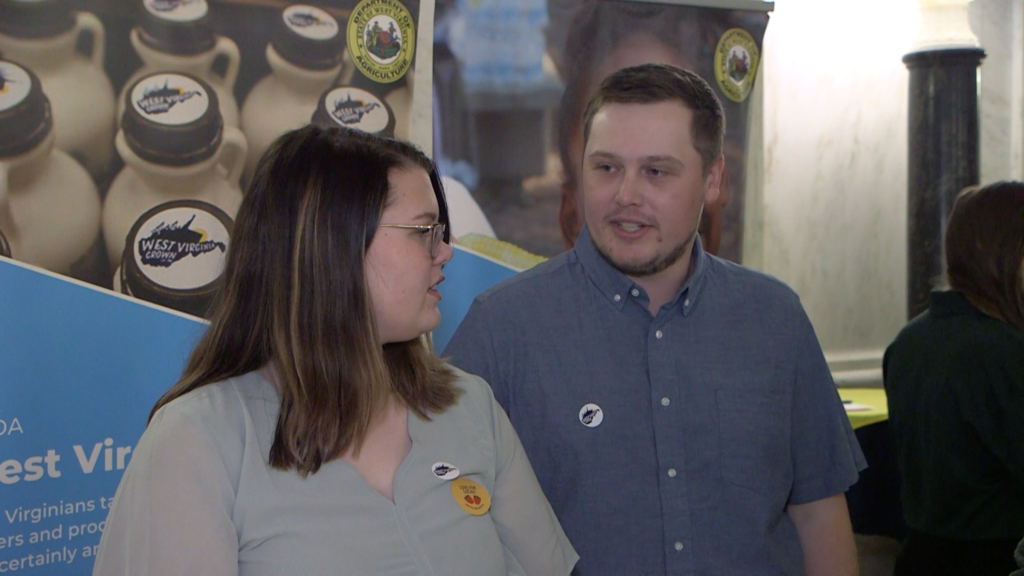In a state traversed with hills and hollows, agriculture is often a challenge, especially for the small family farm. On Agriculture Day at the West Virginia Legislature, multi-generational farmers are honoring the past while focused on the future.
Among all the agriculture booths and displays filling the Capitol Rotunda, were Alex and Jade Hanna. The Greenbrier County couple operate a family farm that was established by Alex’s ancestors in 1787.
“We’ve done a wide range of things over those years. In my grandparents’ lifetime, they were dairy farmers, and they transitioned to beef farming,”’ Alex Hanna said. “I’ve done everything from sheep and poultry. But beef really took off for them.”
Beef and vegetables are the current Hanna Farm mainstays. Alex said the challenges these days are rising expenses that don’t net a profit when taking their beef and vegetables to market. He said the markets themselves are also dwindling.
“We can grow the best produce or the best cattle in the county. But if we don’t have a market for it, we’re not coming out ahead,” Alex said.
Alex noted that the West Virginia Grown promotion is a godsend for small family farms.
“They’re good about encouraging programs such as the Farm to School, we’ve sold a lot of produce to the Farm to School program before,” Alex said. “West Virginia Grown is really bringing knowledge to people in our state about the farmers that are here and what they produce.”
The Hanna Farm is like many small family farms around West Virginia that are resorting to agritourism as a way to make a profit. Their laundry list of ventures include a pumpkin patch, a corn maize, cut flowers, a food truck, whatever they can do to survive.
“We depend heavily on the public, especially with agritourism. We depend on the public to come to us,” Alex said.
No farmer ever says the job is easy, but the Hanna’s said they love what they do and plan to pass it onto the next generation.






















